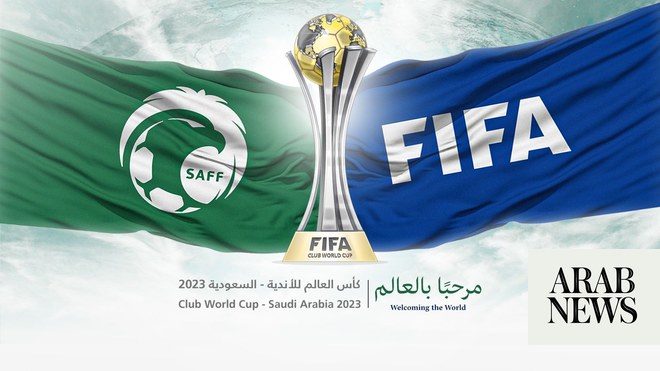
Tournament in Qatar set to kick off next month
Human Rights Watch: ‘FIFA is failing in its human rights responsibilities’
LONDON: The world governing body of football, FIFA, has not committed to a fund to compensate migrant workers for injuries and deaths suffered while working on stadia and infrastructure in Qatar ahead of the 2022 World Cup, which begins in just seven weeks.
Human Rights Watch said this came despite European football’s governing body UEFA, seven national football associations — including those of England, France, Germany and the US — four World Cup sponsors, the general public of 15 countries and myriad former players and public figures calling for one following the launch of the #PayUpFIFA campaign with fellow groups Amnesty International and FairSquare on May 17.
In addition, on Oct. 13 FIFA’s Deputy Secretary-General Alasdair Bell told the Council of Europe that a compensation fund was “certainly something that we’re interested in progressing.”
Michael Page, deputy Middle East and North Africa director at HRW, called FIFA’s inaction an embarrassment.
“Despite prominent footballers, football associations and sponsors supporting the #PayUpFIFA campaign and widespread popular support, FIFA has still failed to commit to calls for a remedy fund for many thousands of migrant workers who died, were injured, or had their wages stolen while making the World Cup possible,” he said.
“FIFA is failing in its human rights responsibilities and showing its disdain for the migrant workers who built the Qatar tournament infrastructure that will fuel its profits.”
The building program that has accompanied Qatar’s successful World Cup bid has been plagued by accusations of mistreatment of migrant workers, including unpaid wages and a significant number of deaths.
Efforts to address these issues and reform the kafala visa sponsorship system since 2018, while promising in places, have come too late, HRW said.
It added that FIFA awarded the 2022 World Cup to Qatar in 2010 knowing that migrant labor would be needed on a huge scale to complete a $220 billion building program, and that it should have taken action to guarantee the human rights of those workers at the time.
On Oct. 14, UEFA’s Working Group said it had asked FIFA to address the issue of migrant labor and human rights abuses by the end of the month, following a June report published by UEFA that stated: “Any injury or death in any workplace in any country should be compensated.”
On Sept. 19, the president of Germany’s FA, Bernd Neuendorf, lent his “unconditional support” to the idea of a compensation fund for migrant workers, which was echoed by the head coach of the Dutch national team, Louis Van Gaal.
The English FA said it supported “the principle of compensation,” while the French governing body said it wanted “a compensation fund for all those who have been victims of work accidents during the construction of the World Cup.”
A poll commissioned by Amnesty, meanwhile, showed 67 percent of 17,477 people surveyed across 15 counties wanted their FAs to voice their support for human rights in Qatar.
Of the World Cup’s major sponsors, HRW said, AB InBev/Budweiser, Coca-Cola, Adidas, and McDonald’s have all backed a compensation fund, as have 15 members of the US Congress and 120 French politicians.
Former players, including England internationals Gary Lineker and Alan Shearer, have also publicly backed the initiative.
Steve Cockburn, Amnesty’s head of economic justice, said: “The message from fans, football associations, political leaders, and sponsors is clear — it is time for FIFA to act and put things right for the migrant workers who made their flagship tournament possible.
“There is a clear choice for FIFA: Dedicate a small proportion of World Cup revenues to make a huge difference to thousands of workers or do nothing and accept that the tournament will be indelibly stained by human rights abuses.”
Nick McGeehan from FairSquare said: “Compensation can have far-reaching consequences to families who would rely on the fund to repay loans, for children’s education, or to buy food.
“When football associations lend their voices, they are helping ensure that thousands of families who have lost their sole breadwinner repay outstanding loans or unpaid bills.”












